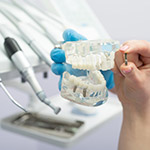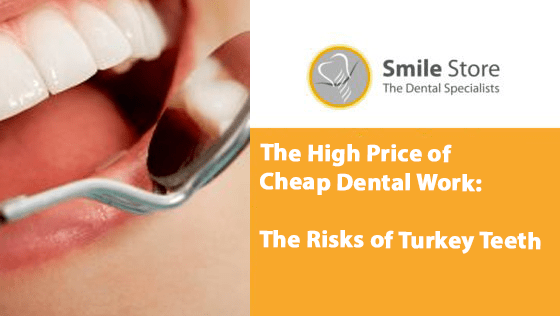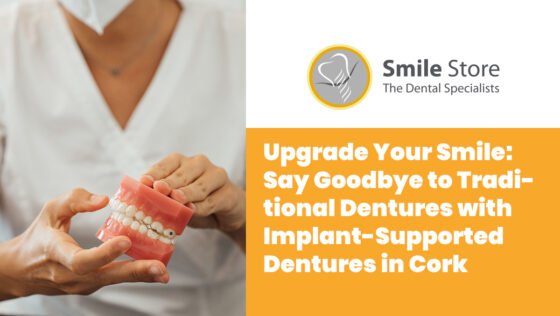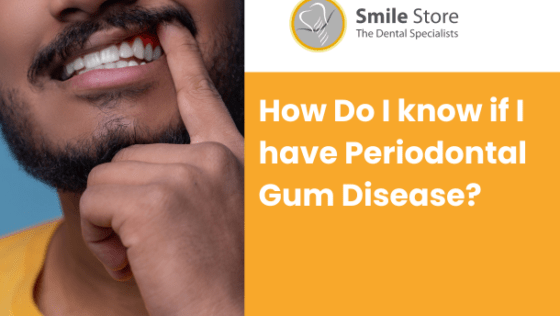During a routine checkup examination, if your dentist finds plaque and tartar deposits on your teeth, they will refer you to a periodontal specialist. If you have also been referred to a periodontist by your general dentist and you’re not aware of what a periodontal specialist is and what they do, you will find this blog useful. This blog explains everything you need to know about periodontists, their speciality, and their job scope. So, continue reading to find out more about periodontal specialists.
What Does a Periodontist Do?
A periodontist is a dental professional who specializes in the prevention, diagnosis, and management of disorders related to the gums and the structures that support our teeth in their sockets. Normally, patients are referred to periodontists by general dentists after they find signs of underlying gum or periodontal disease, such as swollen, bleeding, tender gums, or mobile teeth.
Can A Dentist Miss Periodontal Disease?
General dentists are trained to diagnose and treat the disorders of the entire oral cavity. However, they do not specialize in any one field. You can consider them as all-rounders. General dentists are also trained to diagnose and manage gum and periodontal disease. On the other hand, periodontists received extensive training in the diagnosis and treatment of gum disease. That is why general dentists refer their patients to periodontal specialists whenever they suspect underlying periodontal disease.
What Is The Difference Between A Dentist And A Periodontist?
Both dentists and periodontists are licensed dental professionals who can practice dentistry independently. However, the main difference between these two is that while a general dentist has only received basic qualification in dentistry, periodontists receive further specialization in periodontal treatment. Typically, periodontists have to undergo 3-4 years of additional specialized training in tertiary hospitals to be regarded as specialists in their respective fields. Hence, in short, a periodontist is a dentist who has undergone additional clinical training.
When do Dentists Suggest Periodontal Treatment?
General dentists are trained to diagnose and treat mild gum disease. However, if your dentist observes signs of advanced periodontal disease – which can seriously affect your oral health and physical wellbeing – they will refer you to a periodontal specialist for advanced treatment. Periodontists perform deep cleaning of the teeth and roots, a gum line treatment option, to remove plaque and tartar deposits, which are the primary culprit behind periodontal disease.
What Can I Do To Treat My Own Periodontal Disease?
Periodontal disease is reversible in the early stages. If your dentist diagnoses gum disease in its developing stages, there are measures you can take to treat it yourself. For example, the most effective weapon against periodontal disease is strict oral hygiene maintenance. Brush your teeth at least twice a day with fluoride toothpaste, and floss at least once every day. Besides, your dentist may prescribe a medicated mouthwash, which is very effective in neutralizing the disease-causing bacteria. In short, early-stage periodontal disease can be treated by yourself if you take good care of your oral hygiene.
How Is Periapical Periodontitis Treated?
Periapical periodontitis is a condition in which there is inflammation near the tip of a tooth’s root. This condition develops when infection from a dental cavity or an inflamed gum results in the inflammation of the dental pulp – the innermost soft tissue of the tooth that houses nerves and blood vessels. Common symptoms of periapical periodontitis include:
- Swollen and bleeding gums
- Pus discharge
- Pain in biting
Periodontists treat this condition through endodontic therapy or root canal treatment – a procedure in which the inflamed pulp tissue is removed from the tooth’s interior, followed by thorough cleansing of the tooth and its replacement with an inert material. Root canal treatment is your dentist’s last resort to save a grossly damaged tooth. If multiple attempts to save an infected tooth with root canal treatment are unsuccessful, the last option is to extract the tooth and replace it with a dental implant.
Can You Stop Periodontal Disease From Getting Worse?
Early-stage periodontal disease is reversible and treatable. However, once it progresses into an advanced stage, further disease progression can only be stopped through dental intervention. Your periodontal specialist will perform scaling and root planning to prevent further damage. In this procedure, your dentist will remove plaque and tartar deposits from the teeth and below the gum line, followed by polishing to prevent plaque re-attachment and re-infection. It is essential to visit your dentist regularly for checkups so that gum disease can be diagnosed early before it can cause permanent damage.
Can You Rescue The Tooth With Advanced Periodontitis?
The damage to the gums and underlying bone tissues in advanced periodontal disease is irreversible. However, periodontal procedures can prevent further disease progression and damage. Once the disease has been controlled, your periodontist will take measures to restore your gum health. For example, they may consider a bone graft to replenish the lost bone tissue so that the teeth remain firmly embedded within their sockets.
Untreated periodontal disease can cause severe complications, including tooth loss, and systemic illnesses such as respiratory and heart disease and nervous disorders. But the good news is that periodontal disease is preventable and treatable. All you need to do is maintain optimal oral hygiene and regularly visit your dentist for checkups. If you are looking for a renowned dental family dental practice in Corke, you should consider visiting the Smile Store, where we offer high-quality dental services under one roof. So, book a new patient consultation appointment today and let us take good care of your entire family’s dental health.
Latest posts
Tax Relief
Tax relief is available on many different dental procedures available at Smile Store – The Dental Specialists.
Call backContact us
Request a call back to met one of our friendly staff!
















